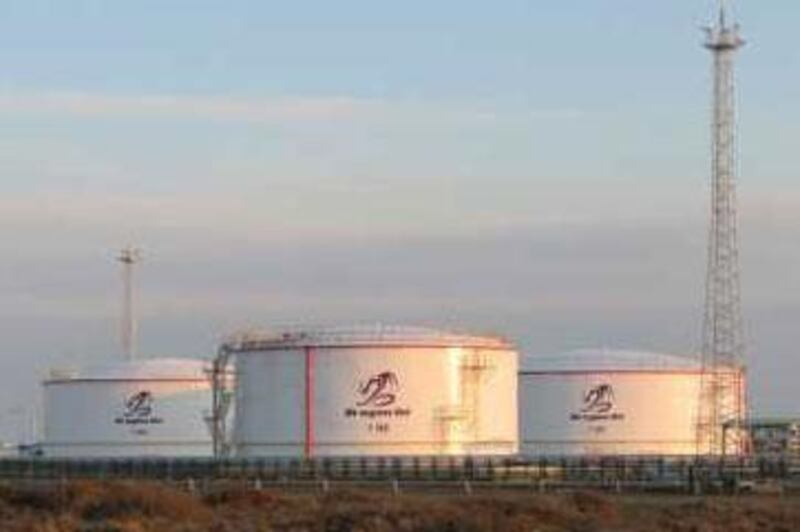LONDON // Emirates National Oil Company (Enoc) has agreed to buy the 48 per cent of Dragon Oil it does not already own for $1.9 billion, as the state-controlled refiner and marketer expands into exploration despite Dubai's indebtedness. Dragon's committee independent directors, formed after the bid approach was announced in June, advised investors to accept the 455 pence a share bid which values the Turkmenistan-focused oil explorer at 2.36 billion pounds ($3.88 billion).
Dragon said in a statement on Monday that the offer represented a 34.6 per cent premium to Dragon's closing price on the last trading day before it said it had received a bid approach. Peter Hutton, oil analysts at NCB brokers recommended investors hold out for a higher bid and raised his price target for the stock to 805 pence. Dragon shares traded up 9.0 per cent at 446 pence. In June, some analysts said a fair bid would be above 5 pounds a share, and since then oil sector shares have risen.
A source close to the deal said Dubai would provide some cash financing while banks had also been lined up to provide money for the deal. Petri Pentti, Group Chief Financial Officer at ENOC declined to comment on financing. ENOC's acquisition of Dragon Oil is the first large-scale acquisition by a Dubai government entity in more than two years and comes as the emirate seeks to restructure a debt pile of about $80 billion.
Dubai, one of the seven emirates in the country, propelled itself into the spotlight as a tourism hub during a six-year oil-fuelled boom, but the downturn rocked its foundations based on excess lending and a transient expatriate population. Dragon's main assets are oil and gasfields in Turkmenistan, which has become a focus for international oil companies in recent years after a change in leadership led to a more open approach toward foreign investment.
*Reuters





